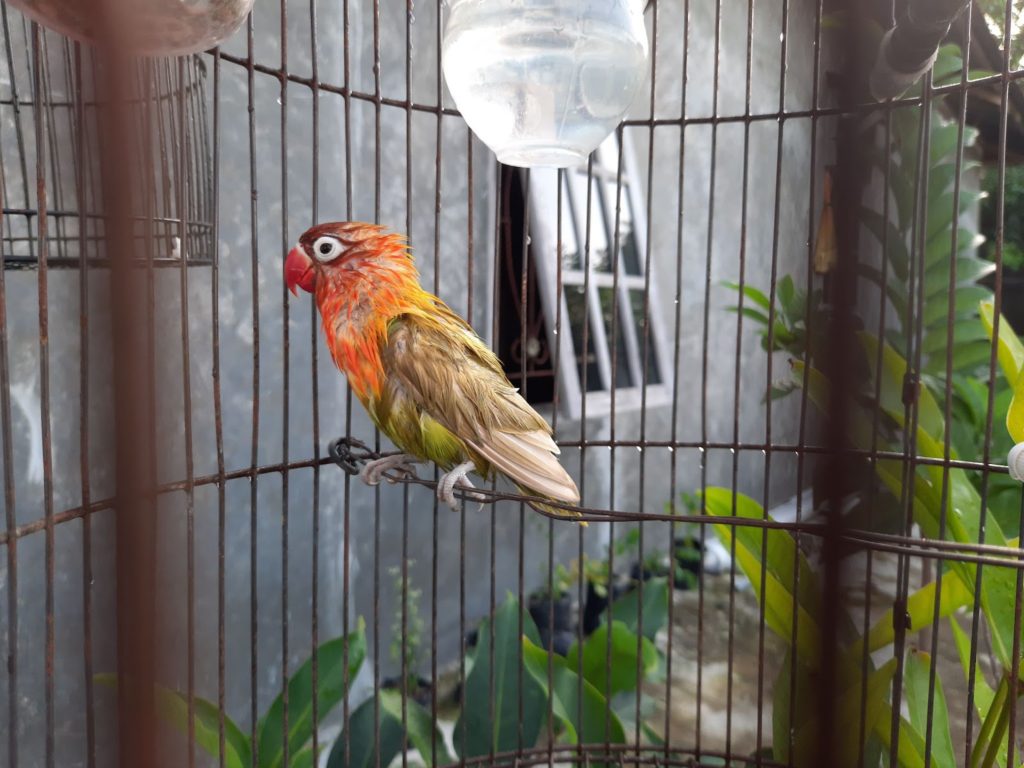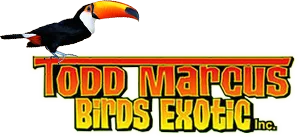The Most Common Mistakes Bird Owners Make

When you first decide to buy an exotic bird, you feel a wave of positive emotions flow over you. New bird owners go out and buy all the latest bird toys, feeders, and accessories that they can find to help make their avian friends feel at home. They may even pay attention to certain words or phrases in conversation or in phone calls to see if their bird will mimic the sounds.
However, in their zeal to help, they can stumble and make a slew of common mistakes that can negatively affect your newfound feathered friend. While people strive towards responsible bird ownership, they often don’t become one overnight. There are some facets of owning an exotic bird that people are unaware of until they have pet birds in their homes and interact with them daily.
Todd Marcus Birds Exotic is here to help newfound exotic bird owners avoid these common mistakes and take the best possible care of their avian friends.
Mistake #1: Nutrition Failings
At first glance, nutrition appears to be the easiest part of owning a bird. In theory, all you need to do is buy the birdseed and give it to the birds, and they go on to live a long and happy life. However, birds have a diverse diet in the wild that includes various veggies, nuts, berries, and other things they could forage for. Besides, different breeds may have different diets — for example, an African Grey does not eat the same thing as a cockatiel.
With a strictly pellet-based diet, they lose out on the potential nutrients that those food sources provide. Striking the right balance between a pellet, veggies, and fruit-based diet will give your birds a better-balanced diet. You can supplement their diet with a selection of bird treats to help with their diet — including our own custom blends for every type of bird, found exclusively at the Bird Store. With the right nutrition plan in place, your birds will enjoy a healthier and happier life!
Mistake #2: Not Varied Enough Perches
When the average person thinks of a captive exotic bird, chances are they picture them sitting on a smooth wooden perch that provides them an area to securely stand on. However, a single smooth wooden perch doesn’t offer the kind of variety that parrots need when they’re standing on a particular perch.
Birds require varied textures for their perches for both their physical and mental health. The smoothness and monotone textures can lead to your avian friend developing a case of bumblefoot or any number of other potential foot disorders if left untreated.
To counteract these potential developments, incorporating different perches through the cage with different textures provides your bird with various materials to keep their grip strength up and give them something different to interact with daily.
Mistake #3: Improperly Sized Cages
Exotic birds, even ones in captivity, need more room to move than people may realize. Many cages found in average pet stores often don’t provide the necessary space for the birds to move and fly around that they need for their development. Even smaller birds need more room to move than the average small birdcage allows, so don’t skimp on the size of the cage; you can ask your Bird Store experts to find the perfect sized cage for your feathered friends!
Mistake #4: Toy Selection
Just like with your children, your birds can easily get tired of the same few toys and can start causing trouble as a result. Birds have more well-developed brains than other animals and require more varied means to entertain themselves throughout their days. Providing them with the right selection of toys that stimulate different parts of their brains can help their overall happiness and development.
Mistake #5: Assuming That Your Bird Will Be Mess-Free
When prospective pet owners research what kind of pet they want to get, they might think that smaller exotic birds might be less messy than your average dog or cat. However, that is rarely ever the case, and birds can keep you busy with cleanup as much as a dog or cat.
When free from their cage, birds can fling pellets, leave feathers, and make messes throughout the home — and that’s without getting into the cleanup after your bird has pooped. These instances usually mean that you have more cleanup than you anticipated. Before you get an exotic bird, make sure that you are ready for the cleanup and preparation for the responsibility of bird ownership.
Now that you know and understand some of the most common mistakes that new bird owners make, you can begin to take the necessary steps to avoid them and be a responsible bird owner out of the gates. If you want to browse through our inventory of exotic birds or explore some of our parrot grooming services, contact Todd Marcus Birds Exotic today!







